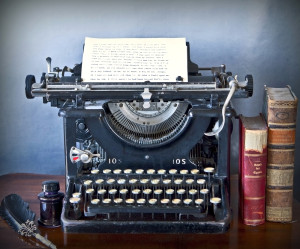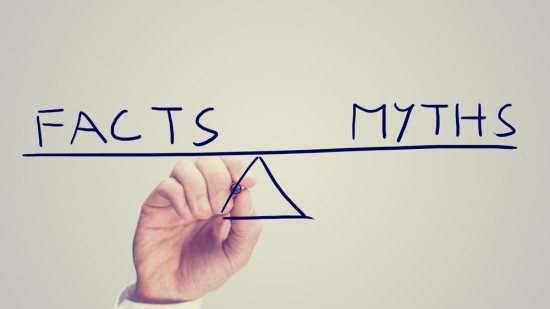A Guest Post By: Brad Cotton
Take a look at Brad’s latest book: By All Men’s Judgments
Myth 1.
Everyone has at least one good book in them.
The Truth:
Writing is bloody hard. And, while everyone may have at least one story that will break your heart, putting it down on paper is not something innate. I can visualize a really great  painting, but hell if I can paint it. I can fathom the coolest dunk, but I couldn’t reach the rim with a pogo stick and jet pack. Writing a great story takes a lot of practice and a lot of hard work. Granted, it comes easier to some, like dunking a basketball would to a seven-footer, but constructing a good sentence and weaving a comprehensive yarn are not skills with which you’re born. Try it, of course, but know when to move on to music or barn-raising instead.
painting, but hell if I can paint it. I can fathom the coolest dunk, but I couldn’t reach the rim with a pogo stick and jet pack. Writing a great story takes a lot of practice and a lot of hard work. Granted, it comes easier to some, like dunking a basketball would to a seven-footer, but constructing a good sentence and weaving a comprehensive yarn are not skills with which you’re born. Try it, of course, but know when to move on to music or barn-raising instead.
Myth 2.
Every book has some redeeming qualities.
The Truth:
Some books are just plain bad. Some say that simply completing a novel is an accomplishment, and that the feat alone should be lauded. Nonsense. I can take the time to construct a car from scratch, but if it doesn’t drive, what I have is a mess in my garage. Sure, I’ve spent countless hours welding and molding and twisting a wrench, but that means very little if I still have to walk to the store. I’ve started many more books then I’ve finished, and that seems to be a rising trend. Some books should never be published, and that’s okay. While not every book has redeeming qualities, every would-be author certainly does.
Myth 3.
Publishing is hard.
The Truth:
My first two responses may seem a bit cynical, so I might just surprise you with this one. Publishing is easy — if you’re willing to take the time to do it yourself. I’ve gone the traditional route, and I was actually quite successful with it, landing a book deal with a reputable imprint. I went through all the usual steps. I did my research, I created a pitch packaged, and I queried agents and publishers until I found a fit and was offered a book contract. I handed over my manuscript, and 9 months later a book arrived and I cut the cord.
I’ve since spoken to many self-published authors and realized that doing all the leg work ones self is not only rewarding, but not really all that difficult. There are countless how-to websites, books, and personal accounts available at a glance. The Internet offers so many channels to publish both print and ebooks that the problem you may indeed face is which service to use. And, it’s cheap! You could conceivably go from manuscript to finished novel for under $1000. It all comes down to what your expectations are for your book, and how much work you’re willing to put in. Traditional publishing is great, but in my humble opinion, retaining your rights (and royalties) and having complete control of the publishing process makes self-publishing that much more attractive. And, that silly stigma is quickly fading.
Should everyone publish their work? God no. Could they? Yes.

Myth 4.
Most Authors are eccentric and weird.
The Truth:
Authors are not eccentric and w… never mind. Authors tend to be eccentric and weird.
Myth 5.
Printed books are dying.
The Truth:
Like local newspapers, printed books seem to being going the way of the Quagga. Never heard of a Quagga? Ever wonder why? One of the major contributors to the dying-book hypothesis is that you don’t have to look very far to find a Starbucks where your local bookstore once stood proud. Be that as it may: Printed books are alive and well. I’ve read a few books on my digital device, and sure, it’s handy-dandy when traveling or when I’m in need of over 500 novels at one time. But there is — and will always be — something about holding a real book in your hands that your digital device cannot replace. The smell, the texture, the sound of turning pages. The stains, the dog-eared pages, the torn cover… wait, ignore that. While ebooks have overtaken printed books in sales, I’m going to make the unbold prediction that the trusty paperback is here to stay… forever. Remember, there will come a time when digital devices will be old hat. My niece isn’t impressed by technology the way her grandmother is, and soon preferences will be split closer to the middle. There will be plenty of room for both digital and print, even with the younger generations. And, when the day comes that the power goes out, or we are taken over by a rogue alien colony, we’ll all be reaching for our old, yellowed, hard copy of 1984.
Brad is the author of 3 fiction novels, the most recent of which is By All Men’s Judgments
